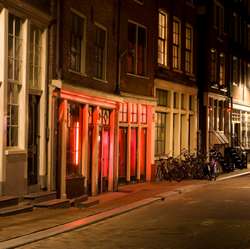Brothels Ads Could Turn Residential Street In To K Rd
 Media Release 14 July 2015
Media Release 14 July 2015
Family First NZ says that new regulations around advertising for residential brothels means that a residential street with families and children could easily become a K Rd red light district.
“Brothels – no matter how large or small – simply shouldn’t be in residential areas or near sensitive sites such as schools, churches or maraes. The bylaws needs to give priority to the concerns and demands of families and create a bylaw that minimises the harms of the flawed Prostitution Reform Act,” says Bob McCoskrie, National Director of Family First NZ.
“In 2013, residents in an Auckland suburb were upset that a cluster of premises offering commercial sex were operating within a kilometre of one another in an upmarket Auckland city-fringe suburb, and there was nothing they could do. To now allow signage on all these places will simply add further aggravation to families who don’t want their children confronted with this industry.”
“The Council’s suggestion that the Advertising Standards Authority or the Human Rights Commission would deal with complaints is naïve and flawed. Both bodies are slow to act, come after the advertising damage has been done, and based on history are more likely to protect the brothels than consider the concerns of families. This is just a cop-out by the Council,” says Mr McCoskrie.
“Contrary to the laughable claims of the Prostitutes Collective that residential brothels are ‘discreet’, accounts of home brothels (SOOB’s) where men willing to pay for sex are visiting nearby homes trying to find the brothel, and concerns about noise, traffic, intimidation, litter, and late-night visits are common experiences from having a brothel in a residential street or next to a school. These accounts have come from throughout the country.”
Family First is repeating its call for the government to amend the Prostitution Reform Act in order to protect families and communities from brothels in residential areas throughout New Zealand.
In an independent poll of 1,000 people undertaken by Curia Market Research in 2011, 66% wanted brothels banned in residential areas, 26% disagreed, and the remainder (8%) were either unsure or refused to answer. More women than men wanted the ban.
“New Zealanders are giving the government and councils the green light to get the red light out of residential and family shopping areas – yet the government and local bodies have been pathetically weak in their response. It appears that politicians don’t want to admit in any way that they made a huge mistake when they decriminalised prostitution in 2004,” says Mr McCoskrie.
ENDS






